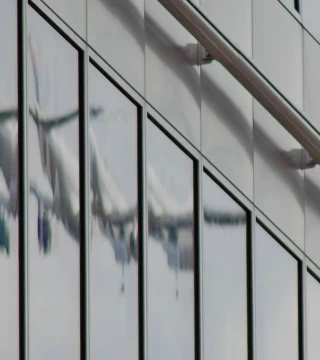How We Help Airline Industry Clients
We serve seven of the ten largest network carriers and six of the top 20 low-cost carriers, in addition to airports, OEMs, cargo carriers, and other key players in the aviation ecosystem. Our airline consulting teams combine expertise in all aspects of the airline industry, including strategy, network planning, airline operations, pricing and revenue management, sales and distribution, personalization and airline loyalty, MRO, people and organization, digital and travel technologies, and sustainability. By working in cross-functional teams, we view each airline holistically to ensure that every move delivers cascading benefits for the business overall.
Our work has achieved groundbreaking impact. One airline client’s transformation has been described as “the largest corporate turnaround in the country’s history.” Another client became the most punctual airline in the world. And another achieved a three-point improvement in on-time departures.
Our Client Success in the Airline Industry
By combining our pricing expertise across multiple industries with our work in revenue management, our airline consulting teams developed a methodology for revenue enhancement in the travel and tourism industry that has helped individual airlines increase revenue per available seat mile (or kilometer) by 1% to 2% on average, and up to 20% on certain routes.
Using BCG’s proven methodology, a South American low-cost carrier improved on-time performance by 9%, crew satisfaction by 50%, crew productivity by 10%, and airport FTE productivity by 11%; it also reduced lost baggage by 20%.
A large US airline built a more-efficient operating platform that optimized crew staffing, preventive maintenance, airport utilization and turn time, and system operations, reducing operational costs by 20% to 25%.
A major Asian airline, facing intense competition from full-service and low-cost carriers, embarked on a two-phase transformation that engaged 10,000 employees in an agile transformation and reduced costs by more than $500 million.


Follow BCG on Consumer on LinkedIn
Our Insights on the Airline Industry













